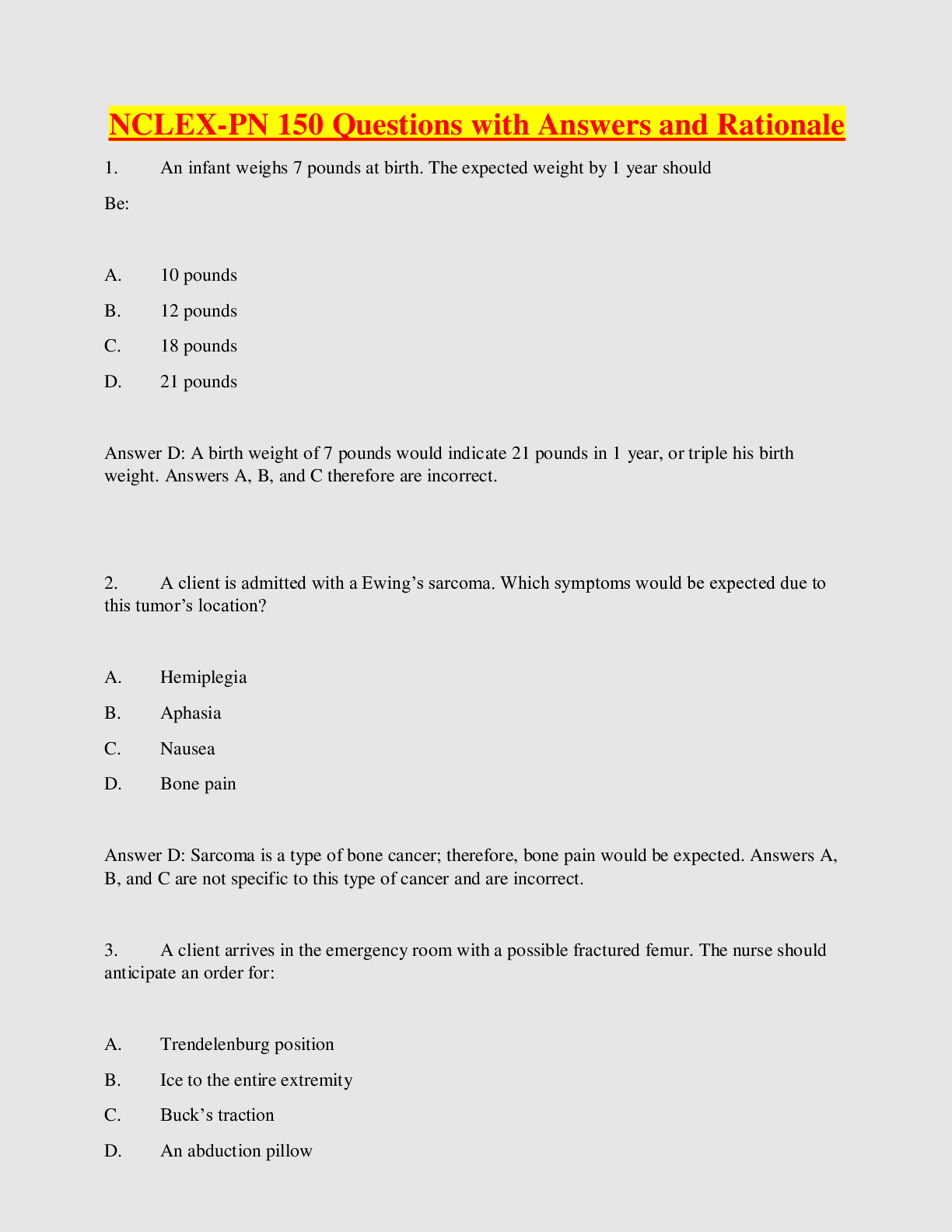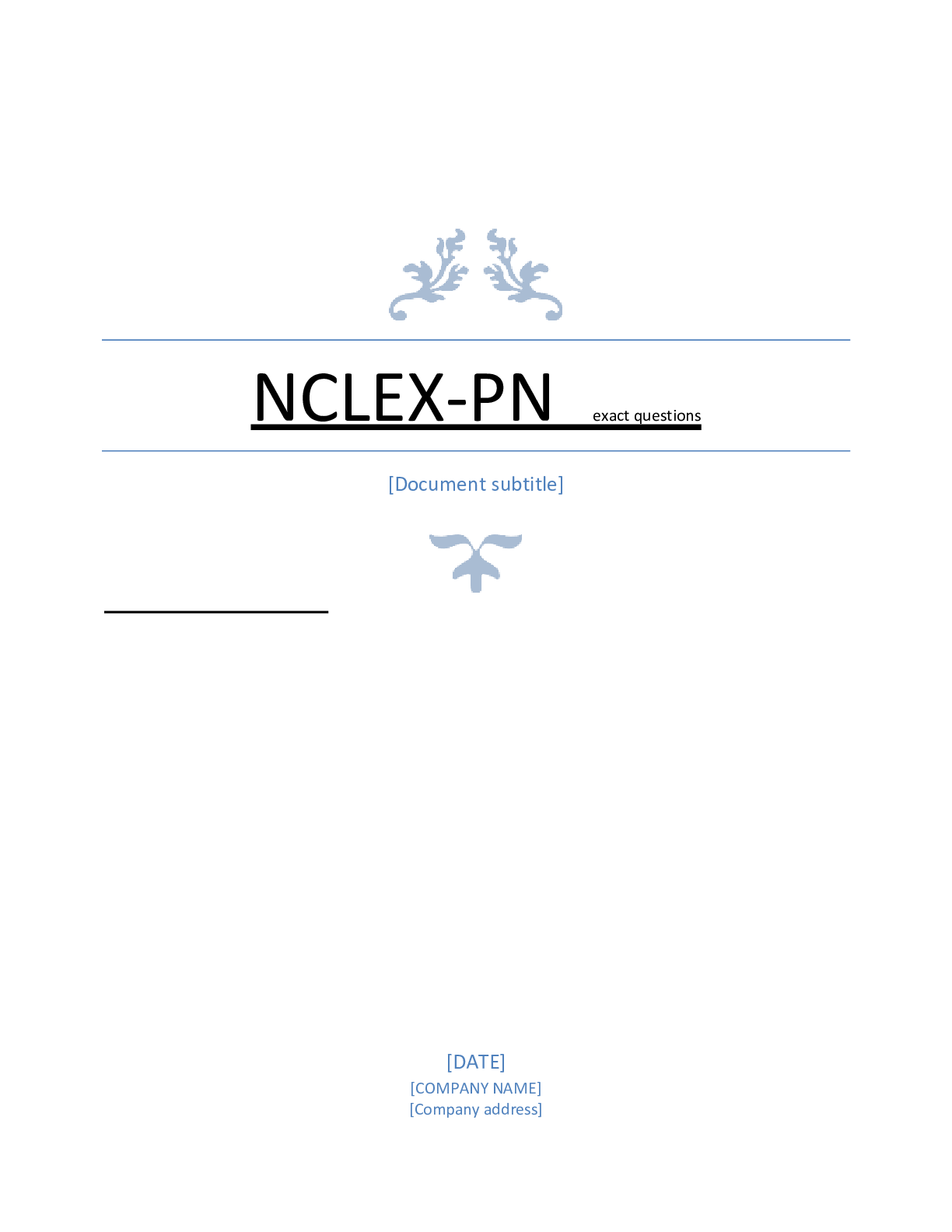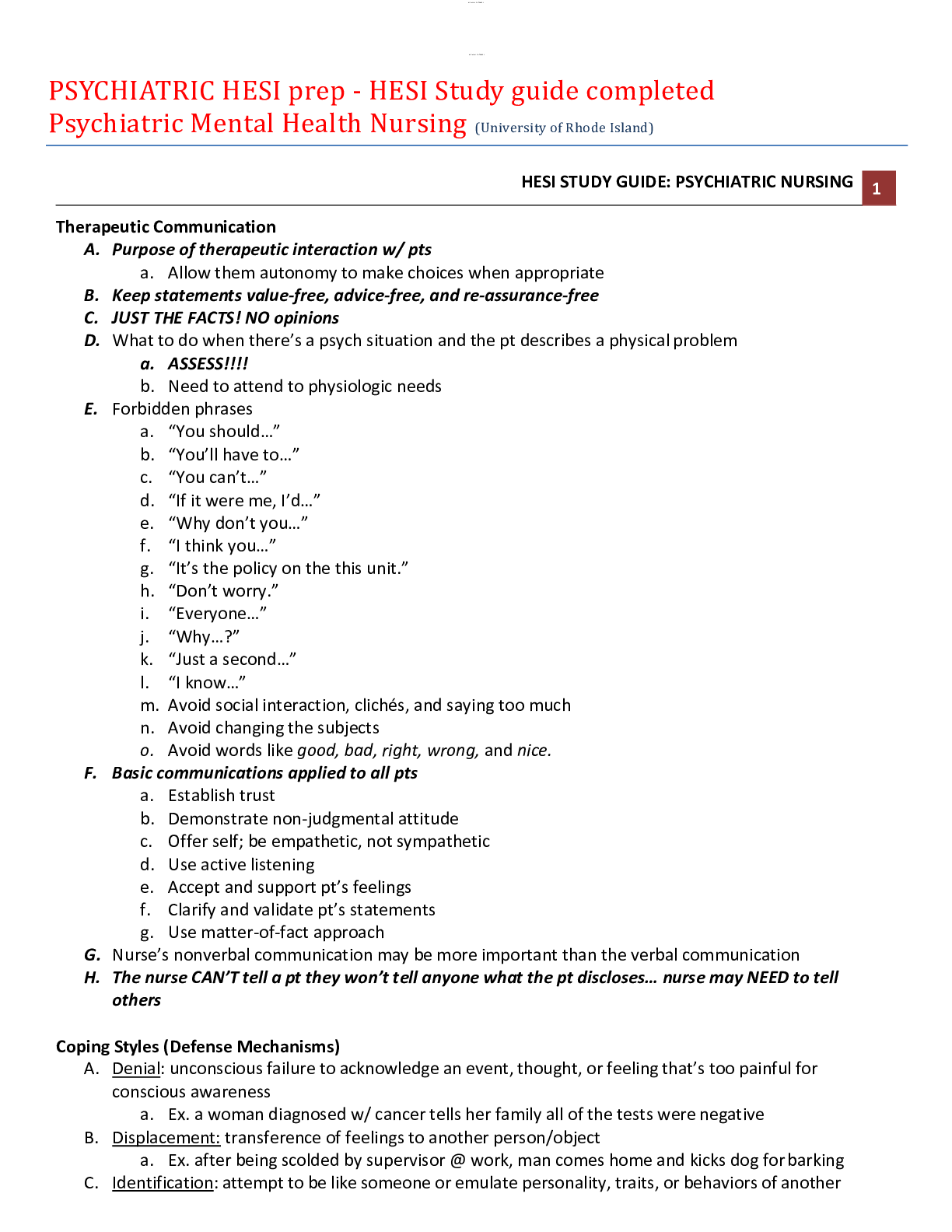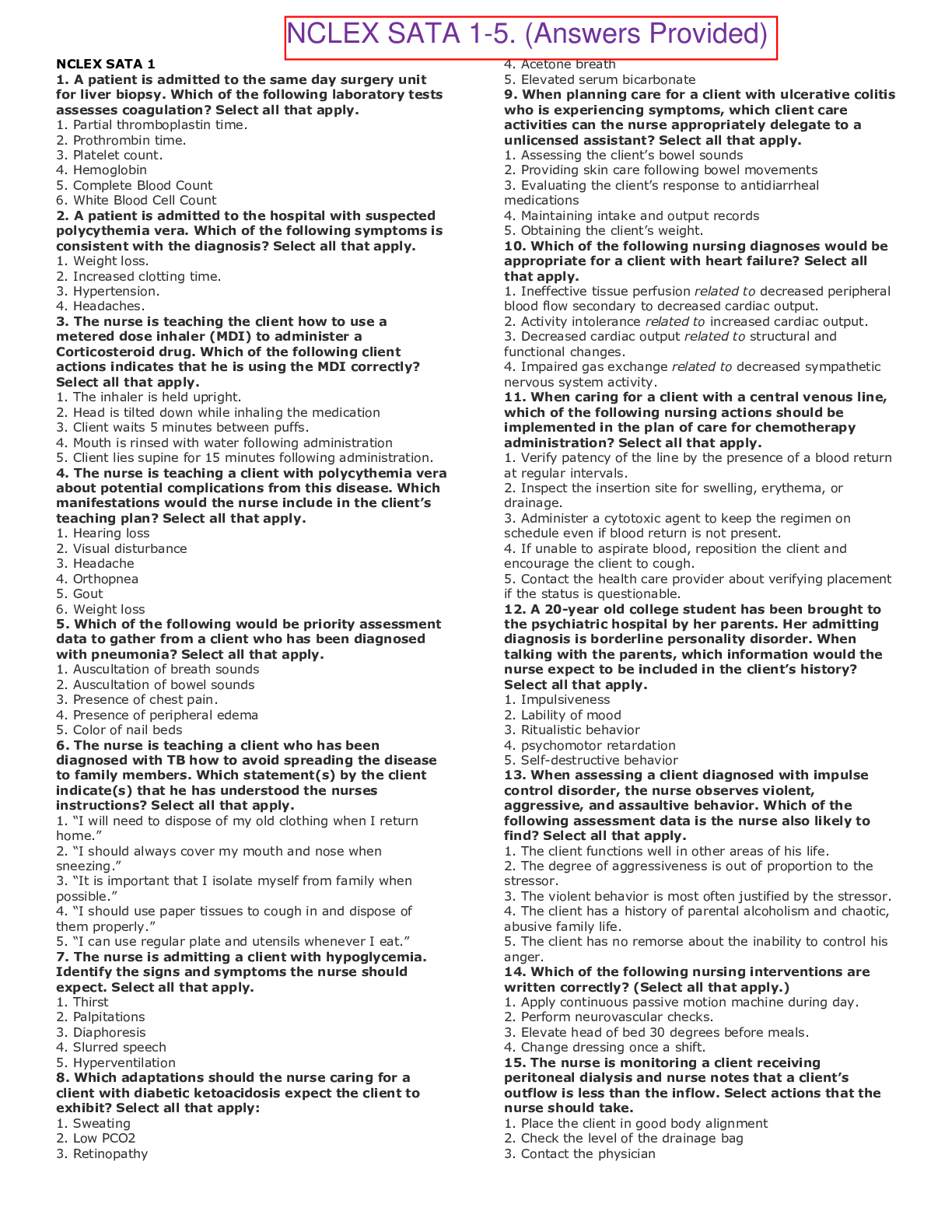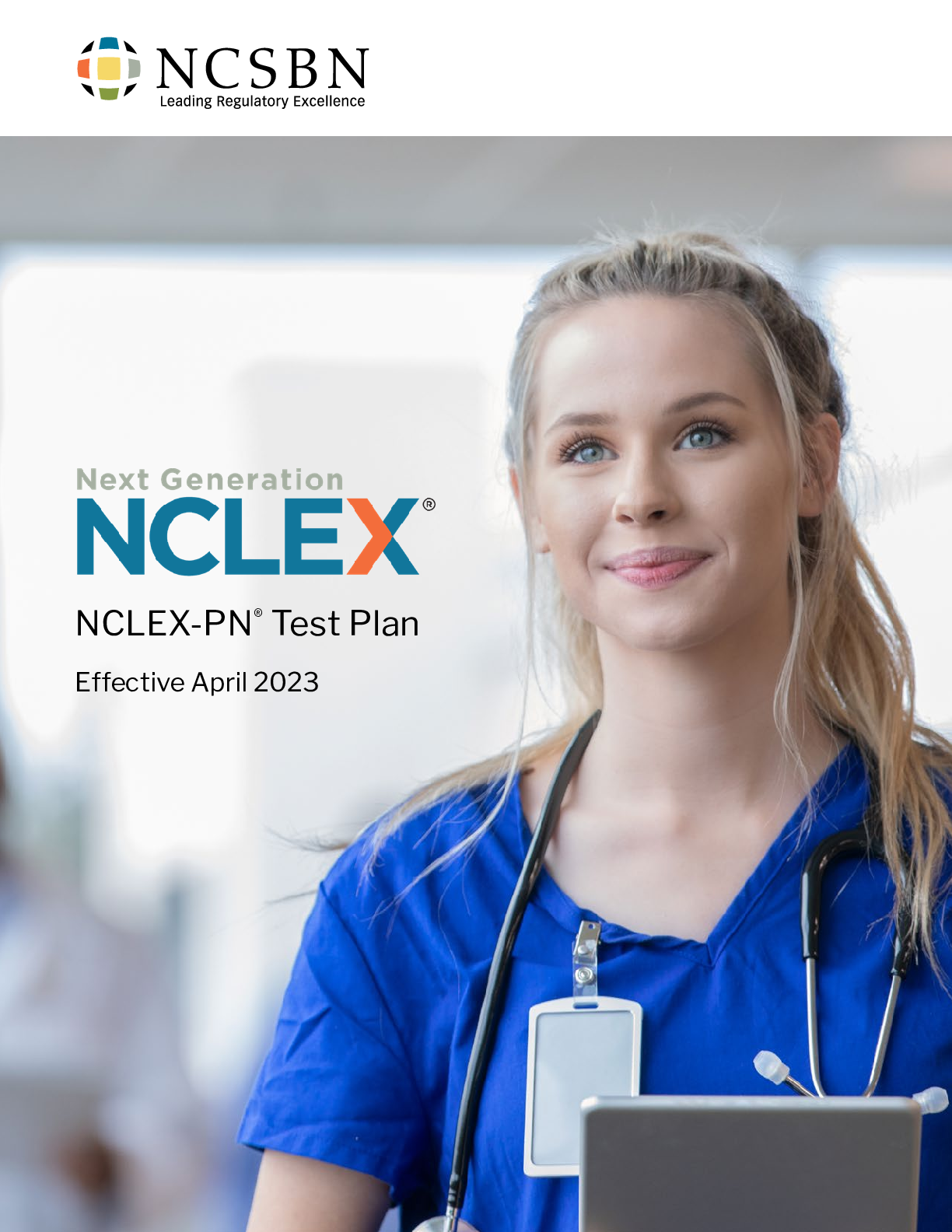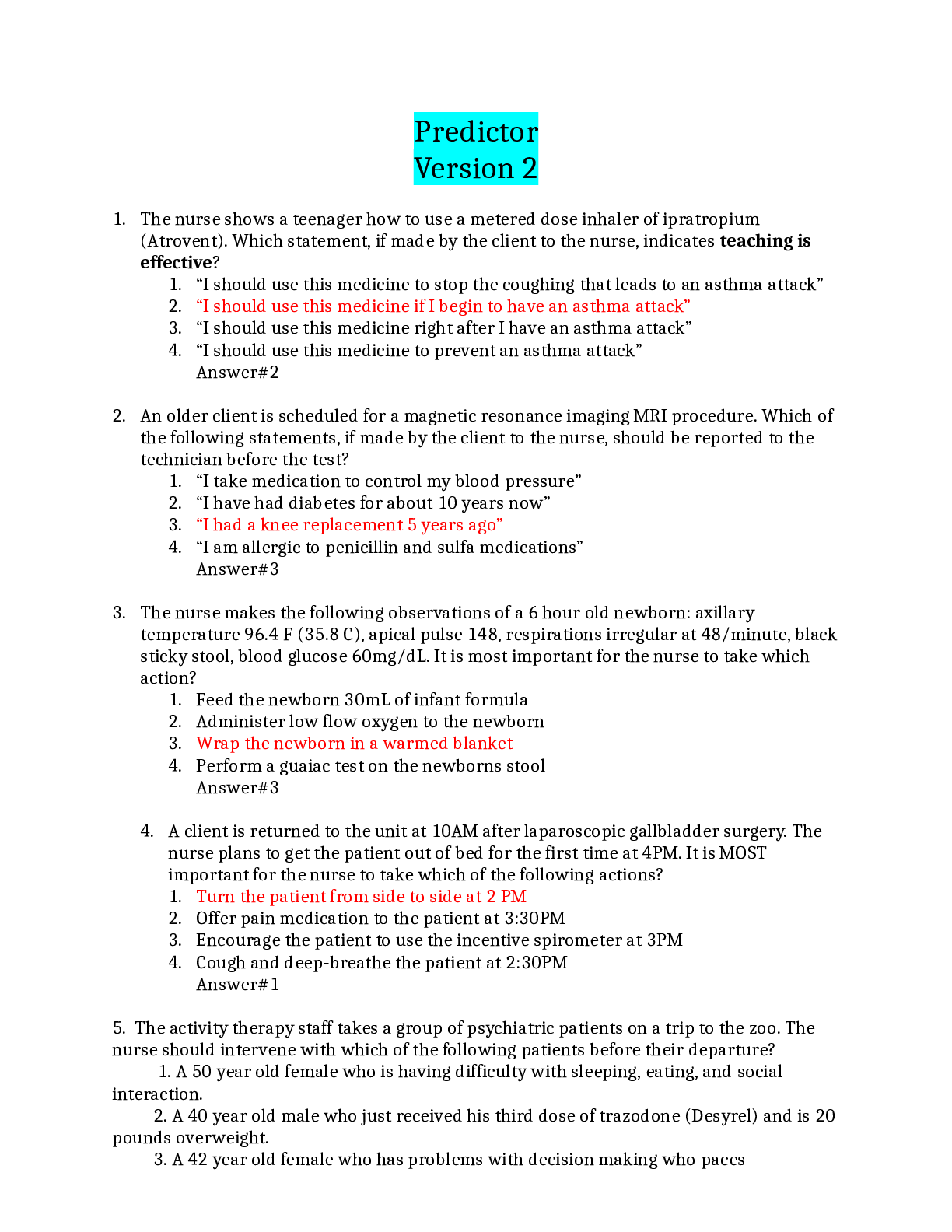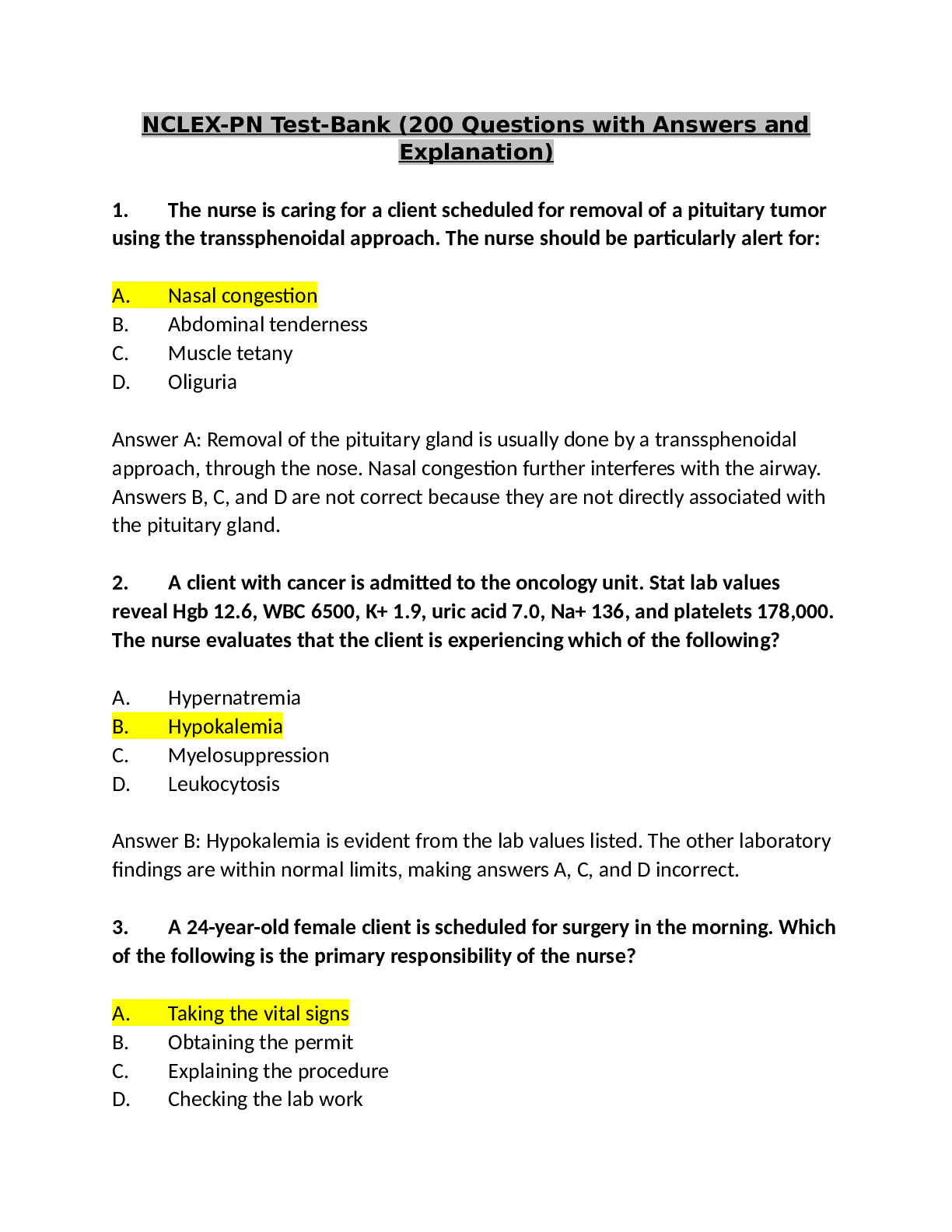*NURSING > NCLEX-PN > NCLEX EXAM NCLEX-PN TEST BANK |725 QUESTIONS & DEEPLY EXPLAINED ANSWERS-2021 (All)
NCLEX EXAM NCLEX-PN TEST BANK |725 QUESTIONS & DEEPLY EXPLAINED ANSWERS-2021
Document Content and Description Below
NCLEX EXAM NCLEX-PN TEST BANK -725 QUESTIONS AND DEEPLY EXPLAINED ANSWERS-2021Teaching the client with gonorrhea how to prevent reinfection and further spread is an example of: A. primary prevention.... B. secondary prevention. C. tertiary prevention. D. primary health care prevention. Answer: B Explanation: Secondary prevention targets the reduction of disease prevalence and disease morbidity through early diagnosis and treatment.Physiological Adaptation Which of the following foods is a complete protein? A. corn B. eggs C. peanutsDsunflower seeds nswer: B Explanation: Eggs are a complete protein. The remaining options are incomplete proteins.Health Promotion and Maintenance NCLEX NCLEX-PN : Practice Test Broccoli, oranges, dark greens, and dark yellow vegetables can be eaten to: A. supplement vitamin pills. B. balance body molecules. C. cure many diseases. D. help improve body defenses. Answer: D Explanation: Controversy over what types of food to eat and not eat is still under investigation. Certain foods can help improve body defenses to possibly prevent certain diseases.Nonpharmacological Therapies The major electrolytes in the extracellular fluid are: A. potassium and chloride. B. potassium and phosphate. C. sodium and chloride. D. sodium and phosphate. Answer: C Explanation: Sodium and chloride are the major electrolytes in the extracellular fluid.Physiological Adaptation NCLEX NCLEX-PN : Practice Test Which of the following nursing diagnoses might be appropriate as Parkinson’s disease progresses and complications develop? A. Impaired Physical Mobility B. Dysreflexia C. Hypothermia D. Impaired Dentition Answer: A Explanation: The client with Parkinson’s disease can develop a shuffling gait and rigidity, causing impaired physical mobility. The other diagnoses do not necessarily relate to a client with Parkinson’s disease.Reduction of Risk Potential Which of the following is an inappropriate item to include in planning care for a severely neutropenic client? A. Transfuse netrophils (granulocytes) to prevent infection. B. Exclude raw vegetables from the diet. C. Avoid administering rectal suppositories. D. Prohibit vases of fresh flowers and plants in the client’s room. Answer: A Explanation: Granulocyte transfusion is not indicated to prevent infection. Produced in the bone marrow, granulocytes normally comprise 70% of all WBCs. They are subdivided into three types based on staining properties: neutrophils, eosinophils, and basophils. They can be beneficial in a selected population of infected, severely granulocytopenic clients (less than 500/mm3) who do not respond to antibiotic therapy and who are expected NCLEX NCLEX-PN : Practice Test to experience prolonged suppression of granulocyte production.Physiological Adaptation A primary belief of psychiatric mental health nursing is: A. most people have the potential to change and grow. B. every person is worthy of dignity and respect. C. human needs are individual to each person. D. some behaviors have no meaning and cannot be understood. Answer: B Explanation: Every person is worthy of dignity and respect. Every person has the potential to change and grow. All people have basic human needs in common with others. All behavior has meaning and can be understood from the client’s perspective.Psychosocial Integrity A teenage client is admitted to the hospital because of acetaminophen (Tylenol) overdose. Overdoses of acetaminophen can precipitate life-threatening abnormalities in which of the following organs? A. lungs B. liver C. kidneys D. adrenal glands Answer: B Explanation: NCLEX NCLEX-PN : Practice Test Acetaminophen is extensively metabolized in the liver. Choices 1, 3, and 4 are incorrect because prolonged use of acetaminophen might result in an increased risk of renal dysfunction, but a single overdose does not precipitate life-threatening problems in the respiratory system, renal system, or adrenal glands.Pharmacological Therapies [Show More]
Last updated: 1 year ago
Preview 1 out of 392 pages

Reviews( 0 )
Document information
Connected school, study & course
About the document
Uploaded On
Oct 19, 2021
Number of pages
392
Written in
Additional information
This document has been written for:
Uploaded
Oct 19, 2021
Downloads
0
Views
61

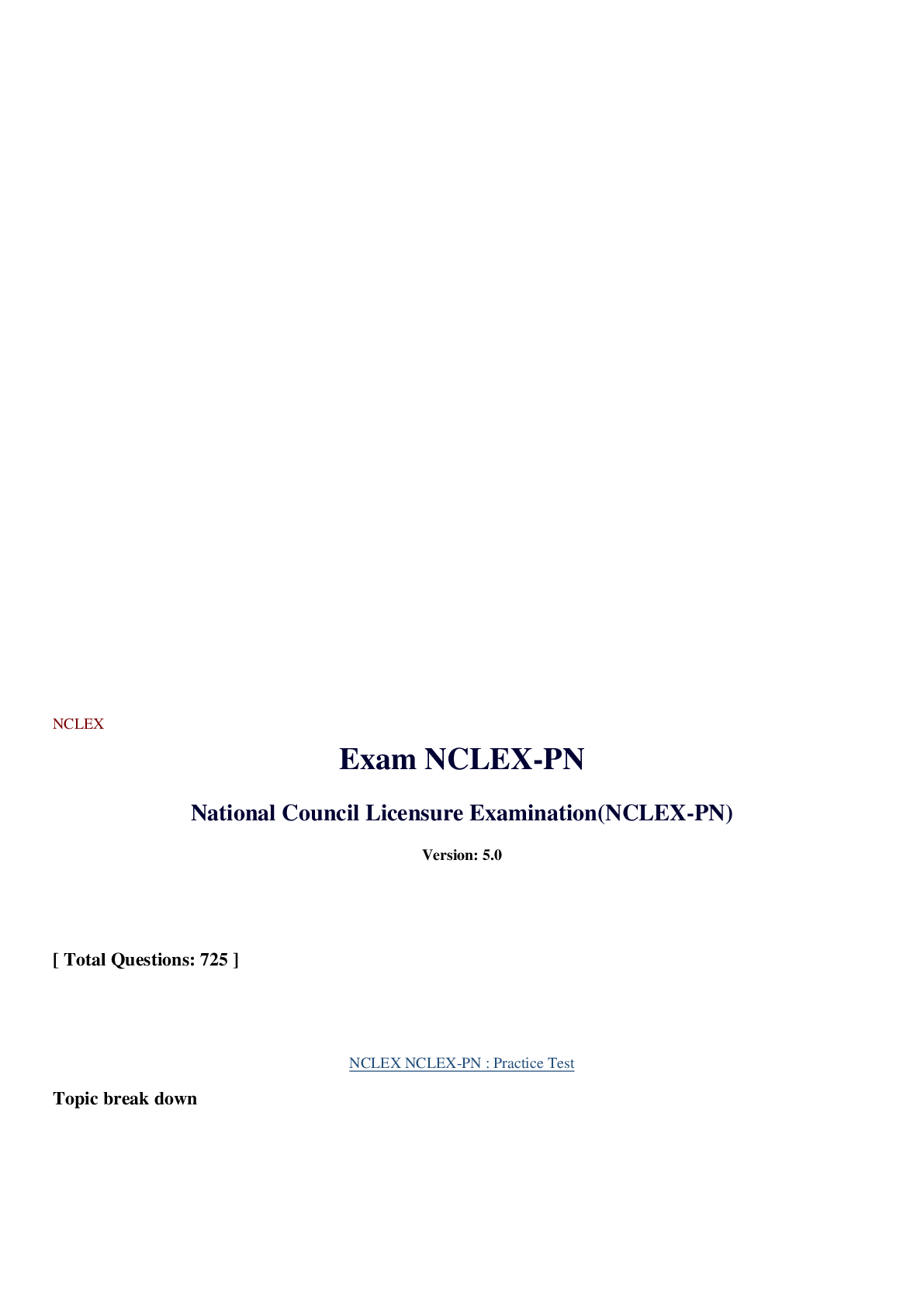
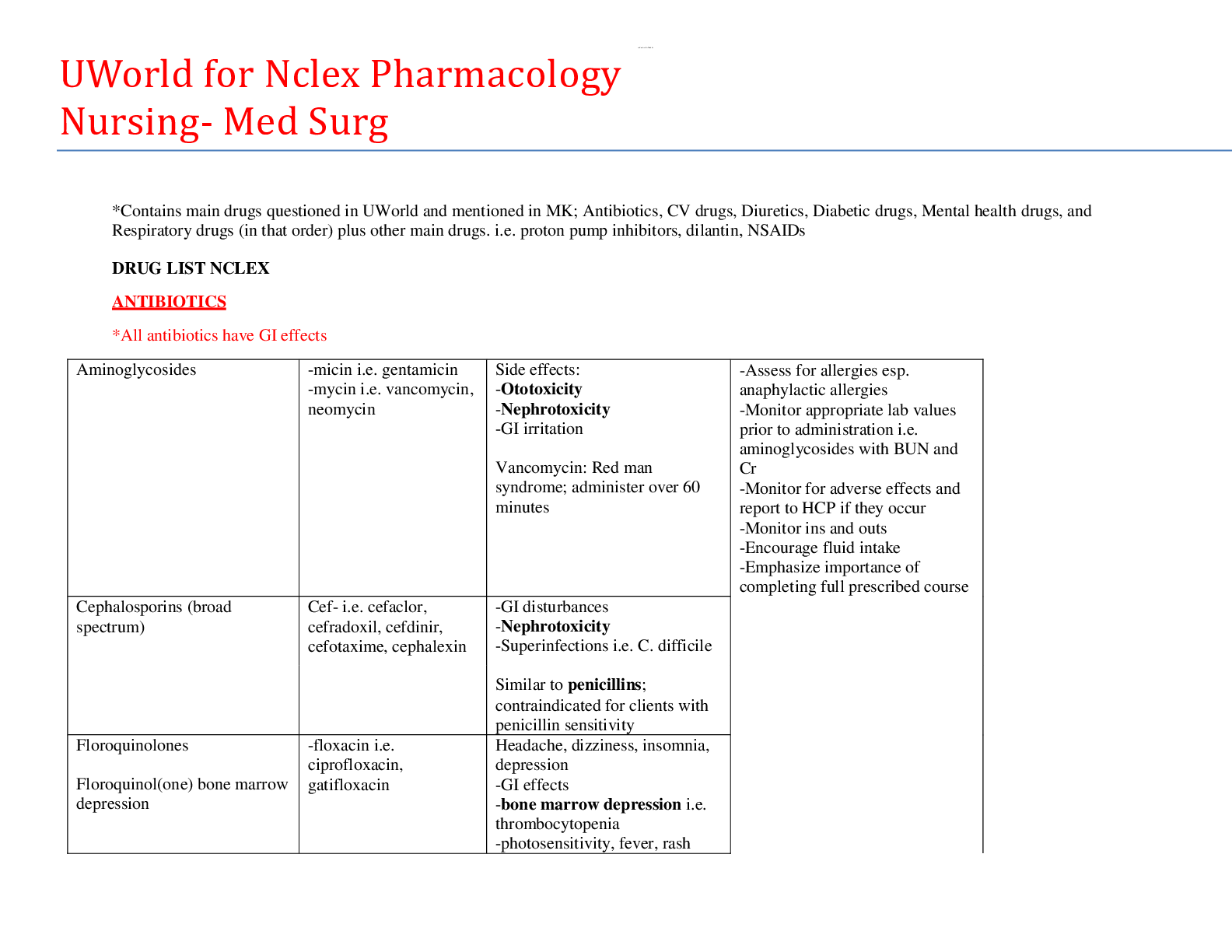
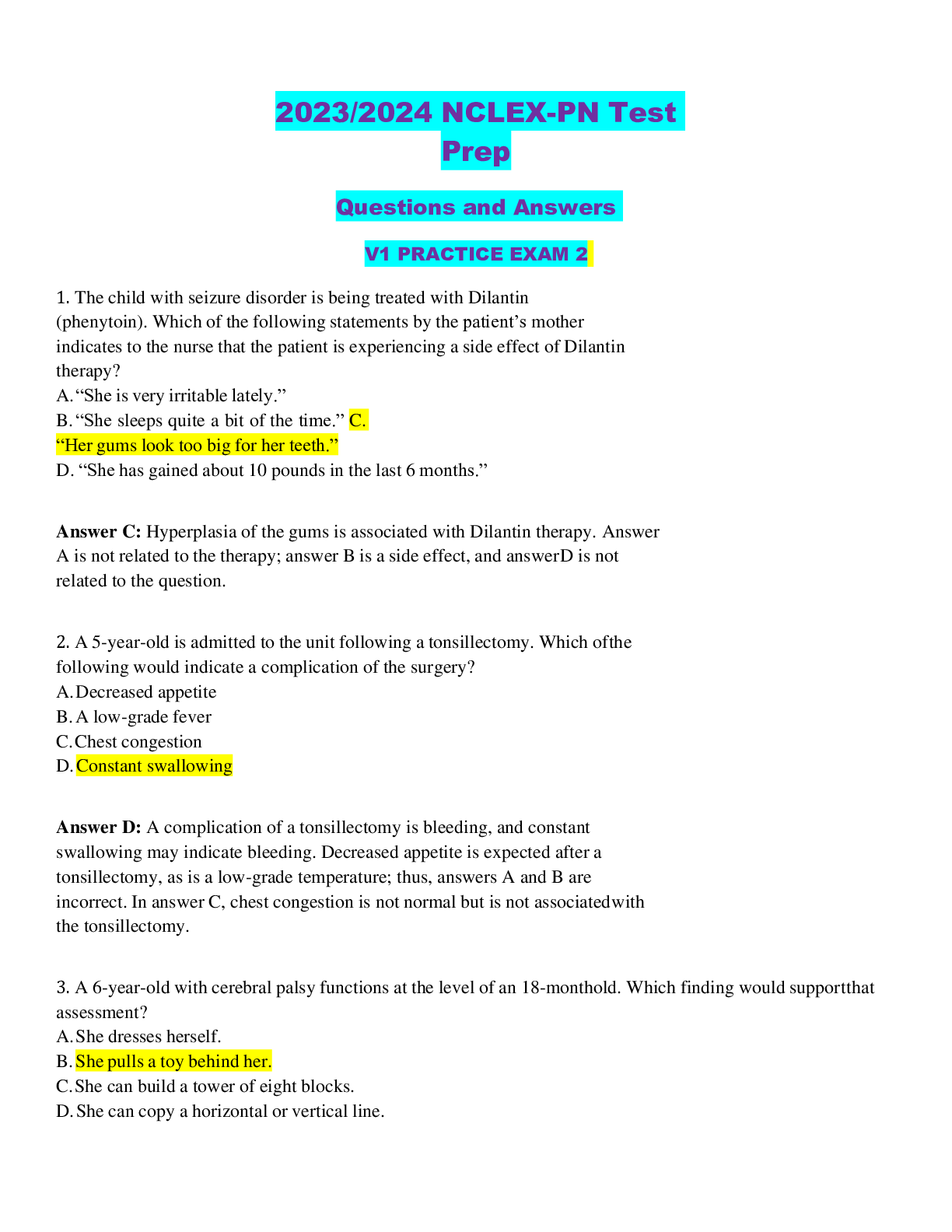
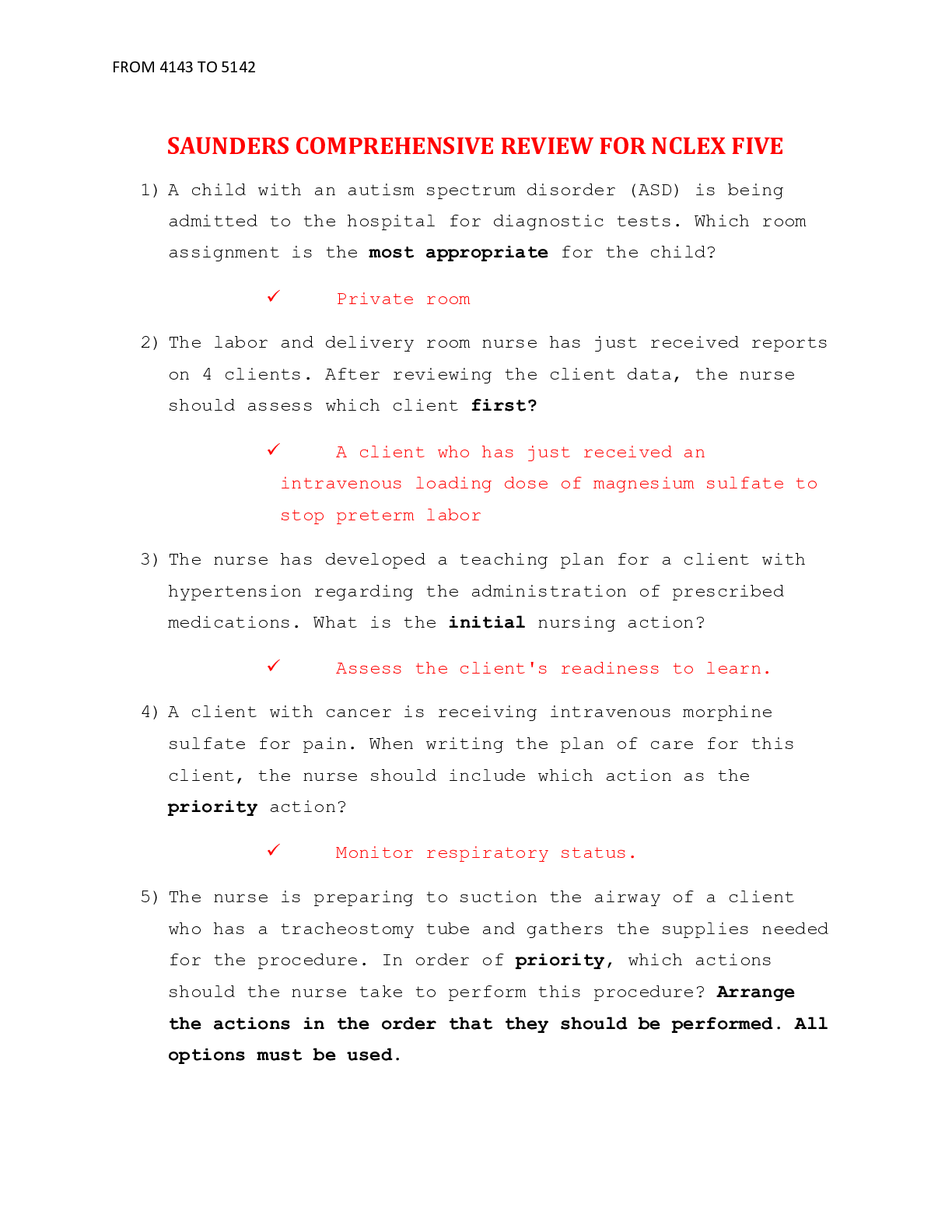
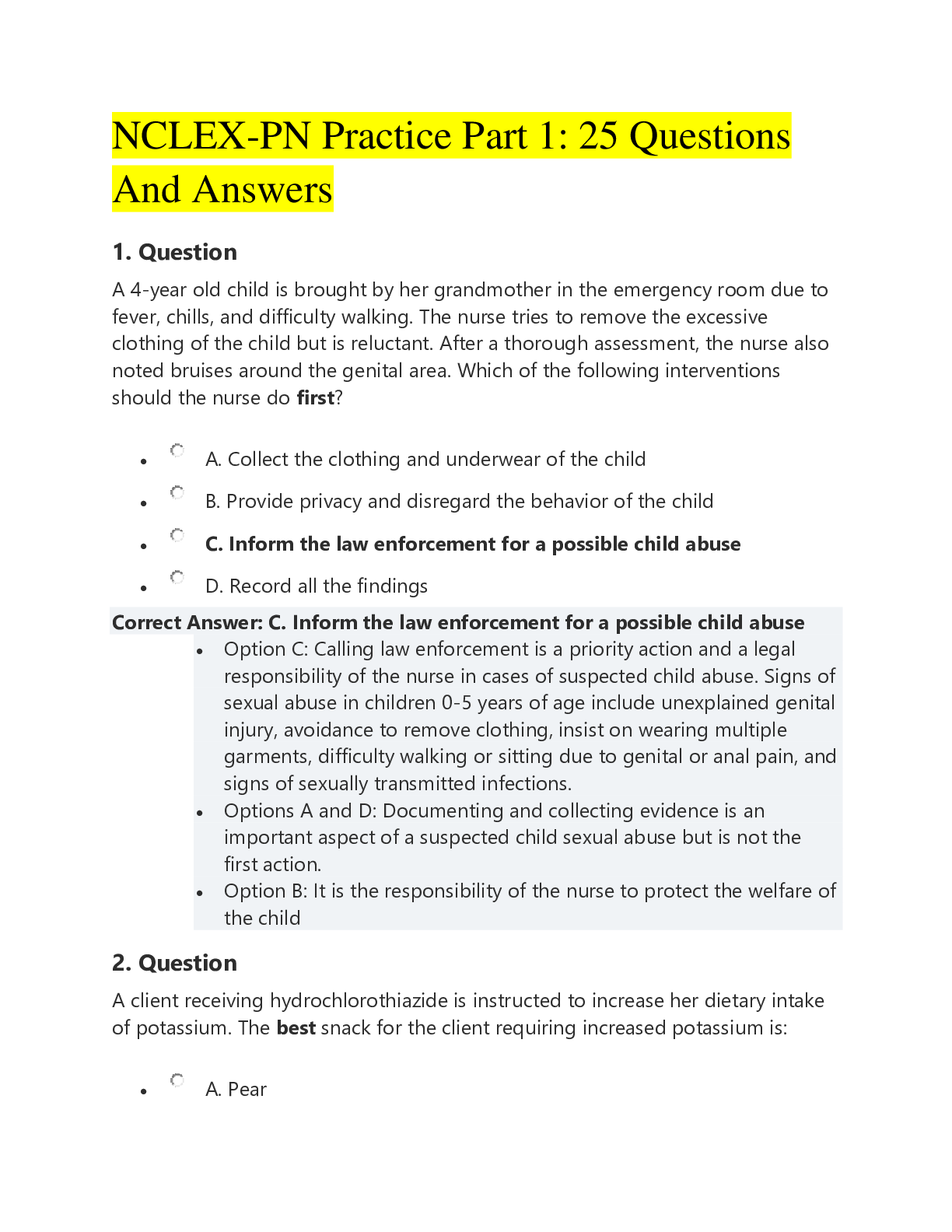
.png)
